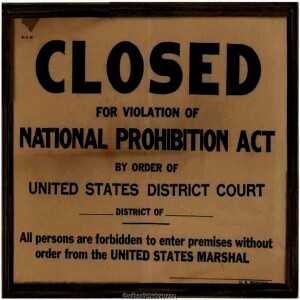
- Podcast Features
-
Monetization
-
Ads Marketplace
Join Ads Marketplace to earn through podcast sponsorships.
-
PodAds
Manage your ads with dynamic ad insertion capability.
-
Apple Podcasts Subscriptions Integration
Monetize with Apple Podcasts Subscriptions via Podbean.
-
Live Streaming
Earn rewards and recurring income from Fan Club membership.
-
Ads Marketplace
- Podbean App
-
Help and Support
-
Help Center
Get the answers and support you need.
-
Podbean Academy
Resources and guides to launch, grow, and monetize podcast.
-
Podbean Blog
Stay updated with the latest podcasting tips and trends.
-
What’s New
Check out our newest and recently released features!
-
Podcasting Smarter
Podcast interviews, best practices, and helpful tips.
-
Help Center
-
Popular Topics
-
How to Start a Podcast
The step-by-step guide to start your own podcast.
-
How to Start a Live Podcast
Create the best live podcast and engage your audience.
-
How to Monetize a Podcast
Tips on making the decision to monetize your podcast.
-
How to Promote Your Podcast
The best ways to get more eyes and ears on your podcast.
-
Podcast Advertising 101
Everything you need to know about podcast advertising.
-
Mobile Podcast Recording Guide
The ultimate guide to recording a podcast on your phone.
-
How to Use Group Recording
Steps to set up and use group recording in the Podbean app.
-
How to Start a Podcast
-
Podcasting
- Podcast Features
-
Monetization
-
Ads Marketplace
Join Ads Marketplace to earn through podcast sponsorships.
-
PodAds
Manage your ads with dynamic ad insertion capability.
-
Apple Podcasts Subscriptions Integration
Monetize with Apple Podcasts Subscriptions via Podbean.
-
Live Streaming
Earn rewards and recurring income from Fan Club membership.
-
Ads Marketplace
- Podbean App
- Advertisers
- Enterprise
- Pricing
-
Resources
-
Help and Support
-
Help Center
Get the answers and support you need.
-
Podbean Academy
Resources and guides to launch, grow, and monetize podcast.
-
Podbean Blog
Stay updated with the latest podcasting tips and trends.
-
What’s New
Check out our newest and recently released features!
-
Podcasting Smarter
Podcast interviews, best practices, and helpful tips.
-
Help Center
-
Popular Topics
-
How to Start a Podcast
The step-by-step guide to start your own podcast.
-
How to Start a Live Podcast
Create the best live podcast and engage your audience.
-
How to Monetize a Podcast
Tips on making the decision to monetize your podcast.
-
How to Promote Your Podcast
The best ways to get more eyes and ears on your podcast.
-
Podcast Advertising 101
Everything you need to know about podcast advertising.
-
Mobile Podcast Recording Guide
The ultimate guide to recording a podcast on your phone.
-
How to Use Group Recording
Steps to set up and use group recording in the Podbean app.
-
How to Start a Podcast
-
Help and Support
- Discover

On this day in labor history, the year was 1917.
That was the day that Congress passed the Eighteenth Amendment, which outlawed the transportation, manufacture and sale of alcohol.
The amendment went into effect thirteen months later.
According to John Rumbarger, author of Profits, Power and Prohibition, the temperance movement centered on tightening social control of working people.
Workers often met in bars and saloons to unwind after work and to socialize.
But in the days before union halls, the saloon doubled as a headquarters where workers could talk about problems on the job like mistreatment and poor working conditions.
They used the saloon as place to plan and organize strikes.
It also served as a site for workers to talk politics and organize around political parties.
Many prominent industrialists complained that saloons were breeding grounds for labor unrest and radical politics.
They also feared a growing immigrant working class that tied its fate to powerful political machines in cities like Chicago, New York and Boston.
The Anti-Saloon movement brought a strange mix into its coalition.
It included the KKK who worried of the growing power of immigrant workers.
But it also included Progressives who worked for labor harmony and sobriety as a means of public health.
The anti-Saloon movement also targeted German Brewers.
The United States had just entered World War I and Anti-German sentiment was so high that many considered German Brewers to be working for the Kaiser, their product a sap on the energies of servicemen and grain production to feed the US troops.
But alcohol flowed freely throughout the 20s, creating both the Jazz speakeasy and bootlegging syndicates.
It would ultimately be repealed by 1933.
More Episodes
 2024-12-10
2024-12-10
 2024-12-08
2024-12-08
 2024-12-06
2024-12-06
 2024-12-05
2024-12-05
 2024-12-04
2024-12-04
 2024-12-03
2024-12-03
 2024-12-02
2024-12-02
 2024-12-01
2024-12-01
 2024-11-29
2024-11-29
 2024-11-27
2024-11-27
 2024-11-26
2024-11-26
 2024-11-25
2024-11-25
 2024-11-24
2024-11-24
 2024-11-23
2024-11-23
 2024-11-22
2024-11-22
Create your
podcast in
minutes
- Full-featured podcast site
- Unlimited storage and bandwidth
- Comprehensive podcast stats
- Distribute to Apple Podcasts, Spotify, and more
- Make money with your podcast
It is Free
- Privacy Policy
- Cookie Policy
- Terms of Use
- Consent Preferences
- Copyright © 2015-2025 Podbean.com


